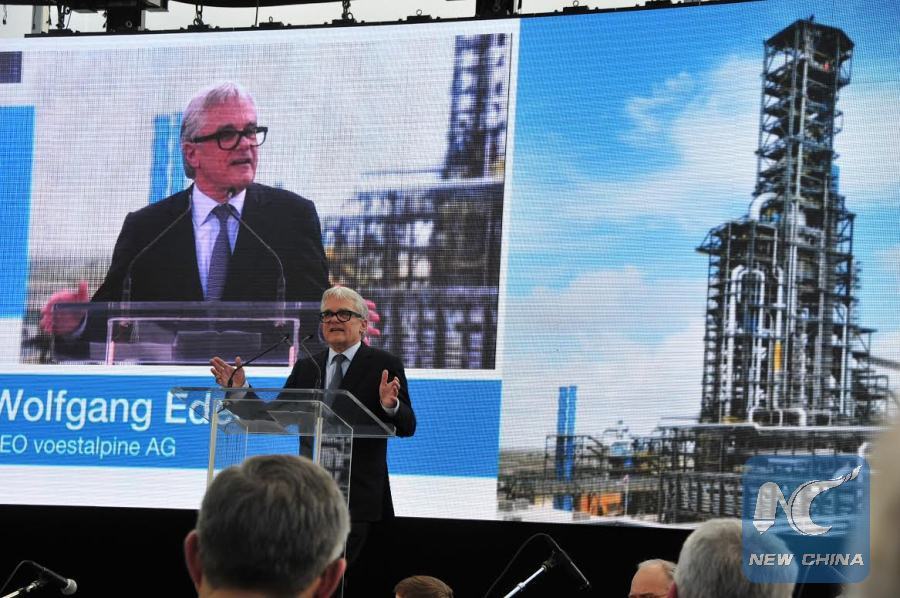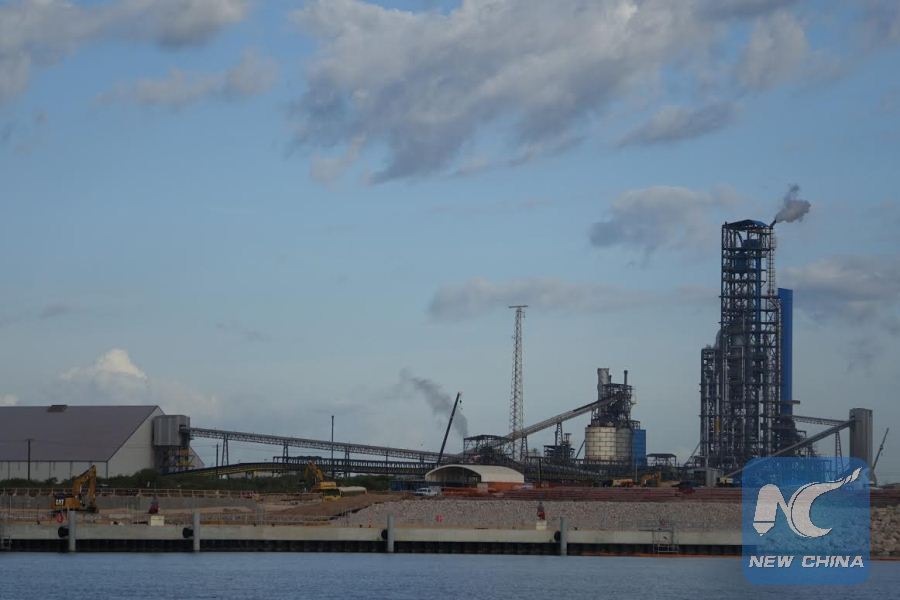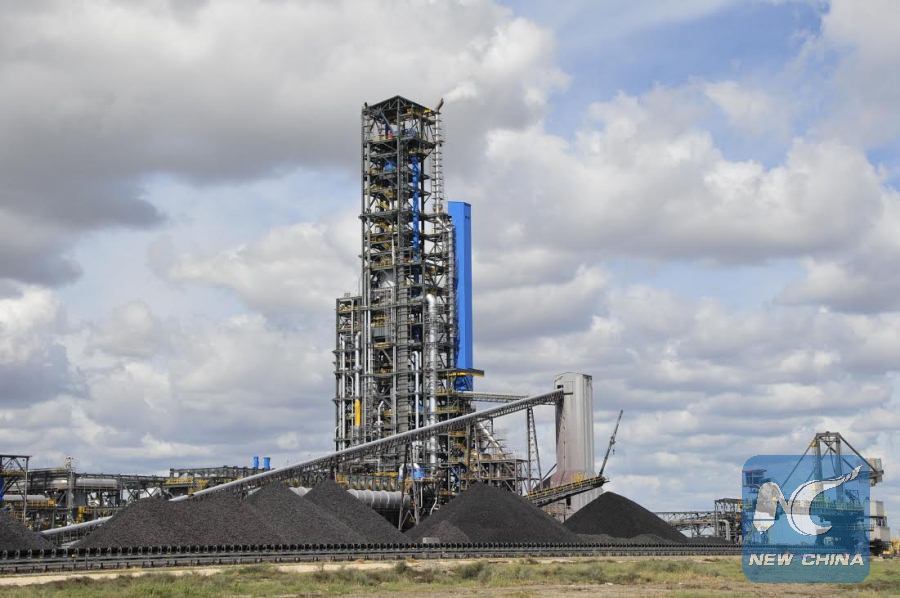
Voestalpine Group Chief Executive Officer, Wolfgang Eder, speaks at grand opening ceremony of a Hot Briquetted Iron (HBI) plant in the southern U.S. state of Texason on Oct. 26, 2016. (Xinhua/Zhang Yongxing)
CORPUS CHRISTI, the United States, Oct. 26 (Xinhua) -- With a Hot Briquetted Iron (HBI) plant newly opened in the southern U.S. state of Texas, Austria's Voestalpine AG has made an important step forward on its path of green steel production.
After about two and a half years of construction, the Voestalpine HBI plant that opened Wednesday in the Mexican Gulf city Corpus Christi, southern Texas, is the world's largest and most state-of-the-art plant of its kind.
Wolfgang Eder, chief executive officer of the Austrian steel group, said the plant is important in providing new environmental and technological options in the future for the global company in steel technology and capital goods.
"Today's opening of the direct reduction plant in Corpus Christi is an important step for and into the future of our company," he told a grand opening ceremony to mark the event.
"The new plant will not only secure the Austrian Voestalpine sites by supplying premium pre-materials for steel production, it will also contribute significantly to further strengthening our position in the North American Free Trade Agreement region," he said.

Voestalpine Group opened a Hot Briquetted Iron (HBI) plant in the Corpus Christi Bay in the southern U.S. state of Texason on Oct. 26, 2016. (Xinhua/Zhang Yongxing)
Voestalpine Texas LLC is designed to have an annual output of 2 million tons of high-quality HBI or sponge iron, a sophisticated pre-material used in steel production. Of the total, about 800,000 tons will be shipped to Voestalpine plants in Austria, and the remaining 60 percent consumed by its partners.
With an investment of 740 million U.S. dollars, the largest ever in the United States by an Austrian company, the HBI plant will only use natural gas as the agent in reducing iron ore pellets in production.
This is an environment-friendly steel technology, Eder said, compared to the usual pure coke- and coal-based blast furnace route.
Already regarded as an environmental benchmark in the industry by exceeding all existing American and European standards regarding environmental protection and technology, the newly-opened plant is a key first step on Voestalpine's path of reducing CO2 emissions in steel production.
The move is expected to bring CO2 emissions down about 5 percent across the company.
At the same time, it allows for further technological possibilities in the future for Voestalpine.
"We are systematically working to gradually decarbonize steel production, first by the partial substitution of coal and coke with gas-based bridging technologies, and then by the long-term, gradual use of CO2-neutral hydrogen," said Eder.
The Voestalpine CEO said hydrogen as a reducing agent enables HBI production to be emission-free. It is a possible future replacement, if available, for the Texas plant, and a 23-million-dollar pilot facility using electrolysis to produce hydrogen will soon be installed at a plant in Linz, Austria, where Voestalpine is headquartered.

Voestalpine Group opened a Hot Briquetted Iron (HBI) plant in the Corpus Christi Bay in the southern U.S. state of Texason on Oct. 26, 2016. (Xinhua/Zhang Yongxing)
End-to-end hydrogen-based steel production is estimated to be accomplished in around 20 years at the earliest, and only if the energy cost is reasonable.
The Voestalpine's HBI plant in Corpus Christi boasts a deep water dock now capable of handling 5 million tons of cargo each year, including 3 million tons of iron ore pellets that are expected to come in. Seawater will account for about 80 percent of the cooling and process water needed in its operation in a contactless manner, allowing it to return to the local bay free of contamination.
The plant covers an area of two square kilometers, with a 137-meter reduction tower being the highest building in southern Texas. It is expected to create 190 jobs.
Voestalpine has around 48,500 employees and 500 subsidiaries worldwide, including several plants in China.
"China is our most important partner and market in the East," said Eder, adding that "we will increase the number of our plants in China in the coming years."

